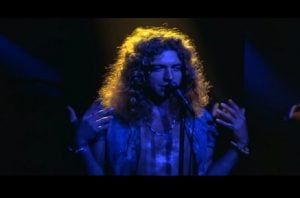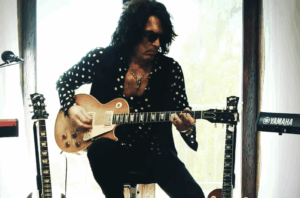Bruce Springsteen Admits He Was So Arrogant When Making His 1st Album

via Bruce Springsteen / YouTube
Before he became “The Boss,” Bruce Springsteen was a driven young artist trying to carve a name for himself in the crowded world of rock music. His first two albums were met with critical praise but fell short commercially, and Springsteen knew he needed a breakthrough to survive in the industry. That drive for recognition pushed him to create something bold and unforgettable.
It was during the making of Born to Run in 1975 that Springsteen fully embraced his ambition. Far from being humble, he openly admits to having been filled with arrogance and blind confidence. He wasn’t just trying to make a good record—he wanted to make the record, the one that would blow listeners away and solidify his place in rock history.
In hindsight, Springsteen reflects on that time with a mixture of pride and humor. That youthful certainty may have been overconfident, but it played a major role in shaping his legacy and producing one of the most iconic albums of the era.
Shooting for the Moon
After the lukewarm sales of his debut records, Greetings From Asbury Park, N.J. and The Wild, the Innocent & the E Street Shuffle, Springsteen faced a make-or-break moment in his career. Despite their critical acclaim, neither album gained much commercial traction, and the pressure to deliver was mounting. Rather than play it safe, Springsteen went all-in with his next project.
He later revealed that Born to Run wasn’t just another attempt—it was a declaration. “I don’t wanna make a good record, I wanna make The Greatest Record Somebody’s Ever Heard,” he boldly told Entertainment Weekly. That kind of thinking may sound outrageous coming from a young artist with little mainstream success, but Springsteen believed in his talent and was ready to gamble everything.
The gamble paid off. With its sweeping sound, cinematic lyrics, and polished production, Born to Run launched Springsteen into superstardom. It not only saved his career but became a defining album of the decade, proving that sometimes, a little arrogance can lead to greatness.
View this post on Instagram
Finding Satisfaction Years Later
Even though Born to Run marked a major milestone, Springsteen would later find a deeper sense of fulfillment with another album. In 2002, nearly three decades later, he released The Rising, an emotionally charged record influenced by the events of 9/11. This time, it wasn’t about proving something—it was about healing and connection.
Reflecting on The Rising, Springsteen said he had never been as satisfied with an album as he was with that one. The timing, the message, and the unity of the E Street Band all contributed to that feeling. He appreciated the rare gift of having the original members still playing together, still committed to their shared journey.
The band’s legacy had come full circle. As they toured across Europe, they played for new generations of fans—teenagers who now stood where audiences had once stood 30 years before. For Springsteen, this wasn’t just a continuation of a career; it was a renewal of purpose.
View this post on Instagram
Looking Back at the Early Days
Despite the glory that Born to Run brought, Springsteen sometimes missed the creative freedom he had when nobody was listening. Writing his first two albums had been a liberating experience, untouched by the weight of expectation or public scrutiny. Those early days were defined by raw energy and a fearless willingness to experiment.
He acknowledged that he wouldn’t write some of those early lyrics again today—but he wouldn’t change them either. They reflected a particular moment in time, filled with youthful spirit and unfiltered emotion. There was joy in crafting stories from boardwalk nights and the local Jersey scene, a world that felt entirely his own.
For Springsteen, those records remain a time capsule of his beginnings. They remind him of who he was before fame—before he became “The Boss.” And even as his sound evolved and matured, that original spark never truly disappeared. It simply found new ways to shine.
View this post on Instagram











